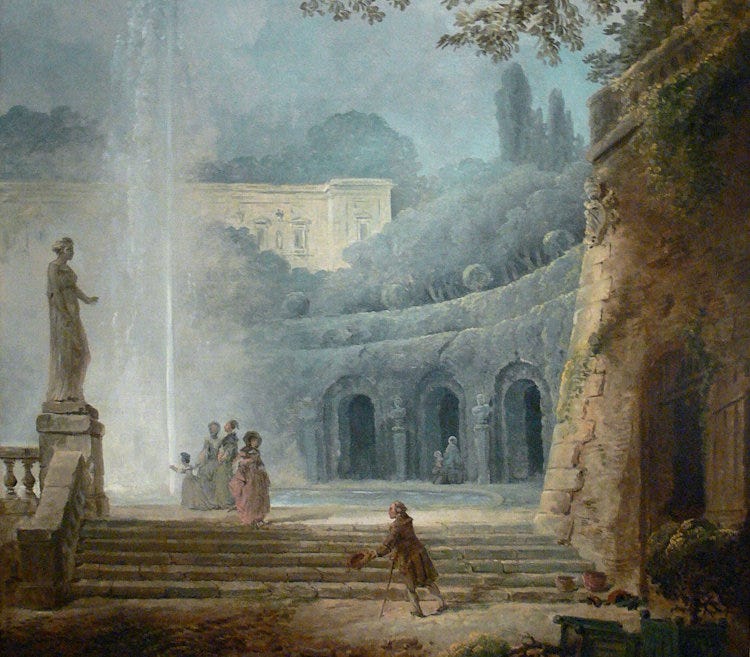Behind the scenes with Wellspring: Claiming my own book number
An inside look at my first steps in self-publishing Writing at the Wellspring
Dear Living Dark reader,
I’m having an interesting time with my first-ever excursion into the territory of self-publishing with Writing at the Wellspring. From the start of my writing career around the turn of the millennium, my books have all been traditionally published, with the sole exception of A Course in Demonic Creativity, which I felt prodded by my daemon muse to release into the wild as a free PDF in 2011. It has remained available in that free format ever since. (But currently the stars have aligned for it to see its first publication in print form, which is something people have been asking me about for years. I’ll say more on that in the future.) So this new approach of going all-in on self-publication, with both print and electronic editions, is providing some unexpected experiences.
The most recent of these was the experience of obtaining an ISBN. For those who don’t speak publisher-ese, an International Standard Book Number is a unique thirteen-digit code that’s assigned to specific editions and formats of a book for global identification, cataloging, distribution, and sales tracking. You’ve seen these numbers many times before on the copyright pages of books. In the past, I’ve always just relied on my publishers to obtain the ISBN for each of my books. But with my choice to self-publish Wellspring, I’m tasked with doing it myself.
It was pretty easy overall, though the level of detail that Bowker—the standard source for acquiring an ISBN—required in the book’s metadata was a bit beyond what I had anticipated. This is actually a good thing, as it required me to redouble my clarity about how I’m framing the entirety of Wellspring when I was asked for a description of its nature and content and a bio of myself as the author. Regarding the latter, by this point in my writing career, I’m pretty experienced at writing an author bio, but the feeling I get from talking about myself in the third person has never lost its edge of weirdness.
Speaking of those items, the bio and book description, here they are (below my signature). I’m sharing them to help keep you updated on everything related to the steady progress of this book toward publication in November. I have set the date as November 15—a date Bowker made me declare, and now it’s official.
As you read the description, be sure to note the book’s subtitle. I’m glad to have settled on this after a very long time of tooling around with it.
In my next update, I’ll share something about the exact approach that I’m using for this first self-publishing venture. It involves enlisting outside help.
Warm regards,
Book description:
“Writing at the Wellspring: Tapping the Source of Your Inner Genius is a nonfiction exploration of creativity, spirituality, and the deeper forces that shape the writing life. Drawing on twenty-five years of experience as a writer, teacher, and cultural critic, Matt Cardin engages the ancient idea of the muse or daemon as a guide to authentic creative expression, purpose, and calling.
“Part memoir, part spiritual manifesto, and part guidebook for writers and seekers, the book illuminates the inner currents of resistance, silence, and awakening that underlie all creative work. It considers how, in a distracted and unraveling world, writing can become a monastic act of attention and renewal—a way to align with the deeper forces that shape creativity, life purpose, and the nondual ground of awareness beneath the noise of daily life.
“Written for authors, artists, and spiritual seekers alike, Writing at the Wellspring combines cultural critique, personal narrative, and practical reflection. It invites readers to reimagine their creative lives as a path of awakening, guided by the hidden currents of genius within.”
Author bio:
Matt Cardin is an author and educator whose work investigates creativity, spirituality, horror, and culture. His books include To Rouse Leviathan, What the Daemon Said, A Course in Demonic Creativity, and the forthcoming Writing at the Wellspring: Tapping the Source of Your Inner Genius. His fiction and essays have been widely published, praised by Publishers Weekly and Kirkus Reviews, nominated for the World Fantasy Award, and long-listed for the Bram Stoker Award.
Cardin’s writing combines a scholar's insight with a creative’s urgency. Drawing on philosophy, religion, psychology, and the arts, he examines the mysterious forces that drive human imagination. He has co-edited a literary journal, presented at national conferences, and served as editor of three academic encyclopedias.
Alongside his authorial work, Cardin has served as a college faculty member teaching English and religion and as a vice president at colleges in Texas and Arkansas. He is also a classically trained pianist with a lifelong engagement in music and the arts.




Thanks for sharing and good luck 🍀 I wish you much success!